Development Ethics
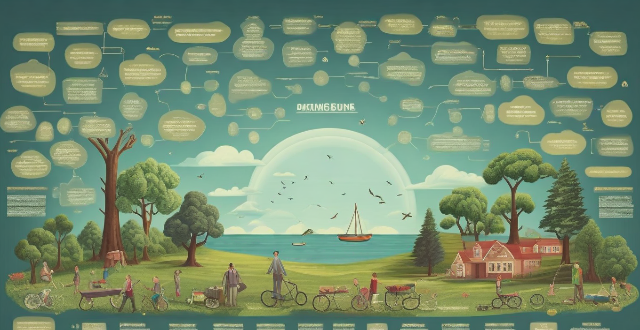
What role does environmental ethics play in sustainable development ?
The text discusses the significance of environmental ethics in sustainable development, emphasizing its role in recognizing the importance of the environment, promoting stewardship and responsibility, encouraging sustainable practices, addressing environmental justice issues, and fostering collaboration and partnerships. It highlights that by understanding the interconnectedness of all life on Earth, we can make more informed decisions about how to use and protect natural resources. The text also points out that environmental ethics promotes the idea of stewardship, which involves taking responsibility for protecting and preserving the environment for future generations. Furthermore, it encourages sustainable practices such as recycling, reducing carbon emissions, and using eco-friendly products to reduce our impact on the environment and contribute to long-term sustainability. Additionally, the text emphasizes the importance of addressing environmental justice issues to ensure fair access to natural resources and protection from environmental harm. Finally, it suggests that environmental ethics fosters collaboration and partnerships between individuals, communities, governments, and businesses to work together towards sustainable development goals.

What is climate ethics and why is it important in today's world ?
Climate ethics is a branch of philosophy that examines the ethical implications of human activities contributing to global warming and explores ways to mitigate its effects. It matters because it addresses the fundamental question of how we should live our lives and interact with the environment to ensure a sustainable future for all. Key principles of climate ethics include the precautionary principle, intergenerational solidarity, environmental justice, sustainable development, and common but differentiated responsibilities. By embracing these principles and taking action based on them, we can work towards creating a more just, equitable, and sustainable world for all.

How does climate ethics relate to the concept of intergenerational justice ?
Climate ethics and intergenerational justice are important concepts that guide us in making decisions that promote a more equitable and sustainable future for all generations. Intergenerational equity, the precautionary principle, and sustainable development are key principles that should be considered when making decisions about resource use and emissions reductions. Governments, businesses, and individuals can all play a role in promoting climate ethics and intergenerational justice by adopting sustainable practices and supporting policies that prioritize climate action.

What role do corporations have in upholding climate ethics ?
The text discusses the vital role of corporations in maintaining climate ethics, emphasizing their responsibilities in areas such as emissions control, innovation for sustainability, education and advocacy, stakeholder engagement, and making ethical investment decisions. Corporations are urged to take proactive steps towards reducing direct and supply chain emissions, investing in green technologies, promoting eco-friendly products, raising consumer awareness about environmental issues, influencing policies that support climate ethics, engaging with affected communities, and being transparent about their environmental performance. Additionally, companies should consider green investments and divest from fossil fuel industries to demonstrate a commitment to combating climate change. The essay concludes that corporate actions set standards for others, playing a crucial part in fostering a global approach to climate ethics.

In what ways does academic integrity relate to professional ethics ?
**Academic Integrity and Professional Ethics: An Interconnected Relationship** The concepts of academic integrity and professional ethics are fundamentally interconnected, sharing principles like honesty, fairness, responsibility, respect, and courage. Academic integrity lays the groundwork for professional ethics by instilling foundational skills such as critical thinking, research integrity, and ethical decision-making. These skills transition from academia to profession, building reputations for reliability and trustworthiness. Therefore, promoting academic integrity is crucial not only for the academic community but also for the broader professional world.

How can environmental ethics influence policy-making ?
Environmental ethics can play a significant role in shaping policies by raising awareness, promoting sustainable practices, encouraging public participation, and influencing international relations.

How can education promote environmental ethics ?
Education is crucial for fostering environmental ethics among students by integrating interdisciplinary approaches, real-world examples, and skill development. Experiential learning through field trips, hands-on projects, and community engagement helps instill a deeper connection with nature. Teaching sustainable practices like reducing waste and conserving energy encourages responsible resource management. Encouraging critical thinking through debates and research assignments enhances understanding of complex environmental issues. Cultivating empathy and responsibility involves promoting nature connectivity and global perspectives. Assessment and reinforcement strategies such as project-based assessments and recognition programs help evaluate and motivate students' commitment to environmental stewardship.
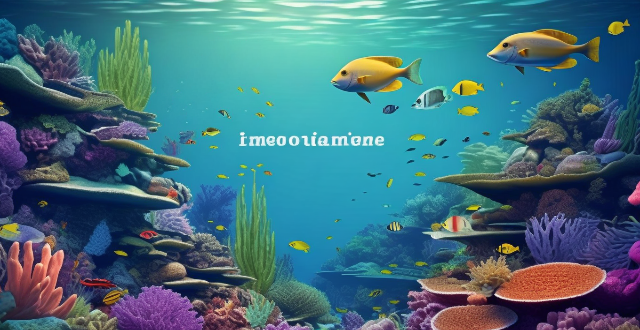
What are the key principles of environmental ethics ?
The text introduces the concept of environmental ethics, which is a branch of philosophy focusing on the moral relationships between humans and the natural environment. It outlines key principles such as respect for nature, sustainability, precautionary principle, intergenerational equity, biodiversity conservation, ethical consumption, ecological justice, holistic thinking, stewardship, and education and awareness. These principles serve as guiding lights in promoting an ethical relationship with the environment, aiming to create a more sustainable and equitable world.
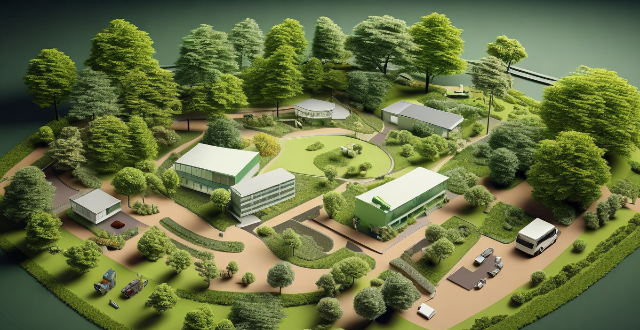
How can environmental ethics be integrated into business practices ?
Integrating environmental ethics into business practices is essential for sustainable development and responsible corporate citizenship. This can be achieved by adopting a sustainability mindset, assessing environmental impact, implementing eco-friendly practices, promoting green innovation, engaging in corporate social responsibility (CSR), complying with regulations and standards, and fostering a culture of continuous improvement. By doing so, companies can mitigate their environmental impact, enhance their reputation, attract socially conscious consumers, and potentially increase profitability through resource efficiency and innovation.

In what ways do indigenous communities' rights intersect with climate ethics ?
The text discusses the intersection of indigenous communities' rights and climate ethics, emphasizing the disproportionate impact of climate change on these communities due to their reliance on natural resources and traditional practices. The analysis outlines key points related to land rights, cultural heritage, participatory rights, environmental justice, and responsibility for losses. It argues that recognizing and supporting indigenous rights is crucial for promoting sustainable development and environmental justice, as well as being a moral imperative for effective climate action.

How can environmental ethics help address climate change ?
Environmental ethics, a branch of philosophy, examines the moral relationship between humans and nature. It helps in addressing climate change by recognizing nature's intrinsic value, promoting stewardship and sustainability, encouraging intergenerational equity, and fostering global cooperation.
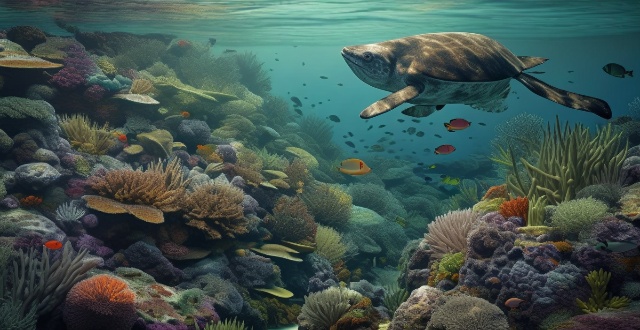
What is environmental ethics and why is it important ?
Environmental ethics, a branch of philosophy, explores the moral relationship between humans and nature. It's crucial for sustainability, biodiversity protection, addressing climate change, enhancing life quality, promoting social justice, encouraging stewardship, informing policy making, raising awareness, stimulating innovation, and fostering global cooperation. This discipline emphasizes our duty to preserve the environment for future generations by considering the long-term implications of our actions.

How do competitive sports influence social development and teamwork skills ?
Competitive sports play a significant role in shaping individuals' social development and enhancing their teamwork skills. This essay explores the various ways in which competitive sports influence these aspects of personal growth, including increased social interaction, building confidence and self-esteem, learning to deal with success and failure, collaboration, communication skills, leadership development, and responsibility and accountability. These skills are not only valuable in sports but also transferable to various aspects of life, making competitive sports an essential component of personal growth and development.
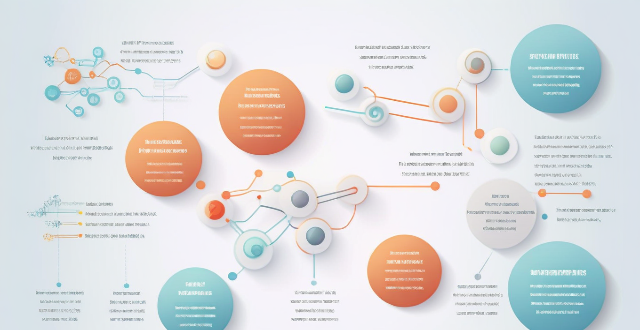
What ethical concerns arise with the development of advanced AI systems ?
The development of advanced artificial intelligence (AI) systems raises numerous ethical concerns, including privacy violations, bias and discrimination, autonomy and control issues, job displacement, and philosophical questions about consciousness and humanity. Addressing these challenges requires establishing legal frameworks, promoting diversity in data sets, maintaining human oversight, investing in workforce retraining, and engaging in cross-disciplinary dialogue to create robust ethical guidelines for AI technology.

How can governments support the development and implementation of sustainable energy solutions ?
Governments can support sustainable energy solutions through clear policies, financial incentives, R&D, education, infrastructure development, international cooperation, market-based mechanisms, and demonstration projects.

How can schools support the holistic development of teenagers ?
Schools play a crucial role in the holistic development of teenagers by providing various support systems. Here is a breakdown of how schools can support the overall growth of young individuals: ### **Academic Excellence** - **Curriculum Design**: Offer a diverse range of subjects to cater to different interests and aptitudes. - **Extracurricular Activities**: Encourage participation in sports, arts, music, etc., to promote physical health and creativity. - **Mentorship Programs**: Pair students with mentors for academic and personal guidance. - **Study Skills Workshops**: Conduct workshops on time management, note-taking, and test preparation. ### **Emotional Well-being** - **Counseling Services**: Provide mental health support and address personal issues. - **Stress Management Classes**: Teach techniques like meditation, yoga, or mindfulness. - **Social Emotional Learning (SEL) Programs**: Integrate SEL into the curriculum to develop emotional intelligence. - **Peer Support Groups**: Create safe spaces for sharing experiences and mutual support. ### **Character Building** - **Moral Education**: Incorporate values like integrity, respect, and responsibility into school culture. - **Community Service Projects**: Foster empathy and social responsibility through volunteering. - **Leadership Opportunities**: Allow students to take on leadership roles within the school community. - **Cultural Exchange Programs**: Promote diversity through cultural exchange programs or international trips. ### **Career Planning** - **Career Counseling**: Offer guidance based on individual strengths and interests. - **Internships & Apprenticeships**: Partner with local businesses for hands-on experience. - **College & University Fairs**: Host fairs for interaction with higher education representatives. - **Entrepreneurship Clubs**: Support entrepreneurial endeavors through clubs or classes focused on business skills. ### **Health & Physical Well-being** - **Physical Education**: Ensure regular PE classes to promote fitness. - **Health Education**: Teach about nutrition, substance abuse prevention, and wellness. - **Sports Teams**: Organize competitive and recreational sports teams. - **Health Services**: Have nurses or health professionals available for medical advice and first aid. ### **Technology & Innovation** - **Computer Literacy Courses**: Teach basic computer skills and programming concepts. - **STEM Clubs**: Foster interest in STEM through extracurricular clubs. - **Digital Citizenship**: Educate about responsible internet use and digital ethics. - **Innovation Labs**: Establish spaces for creative projects and research using modern technology. ### **Environmental Stewardship** - **Sustainability Initiatives**: Implement recycling programs and energy-saving measures. - **Green Clubs**: Form environmental clubs focusing on conservation efforts. - **Field Trips**: Visit national parks, nature reserves, or sustainability centers. - **Service Learning Projects**: Connect classroom learning with real-world environmental issues. By adopting these strategies, schools create an environment that nurtures the intellectual, emotional, moral, physical, and creative aspects of teenagers' lives, preparing them for success in all facets of adulthood.

What are the benefits of extracurricular activities for teenage development ?
This article discusses the benefits of extracurricular activities for teenage development, including improved social skills, personal growth and self-discovery, academic success, physical health and well-being, and lifelong skills and habits.

What role do parents play in the development of their adolescent children ?
Parents play a crucial role in the development of their adolescent children by providing emotional support, guidance and discipline, educational support, promoting healthy lifestyle habits, aiding in social development, and shaping moral and ethical values.

How does social harmony impact economic development and stability ?
Social harmony is essential for economic development and stability, as it increases productivity, reduces conflict, improves governance, attracts foreign investment, and enhances social cohesion.

How has private investment impacted the development of space technology ?
Private investment has significantly impacted space technology development by increasing research and development funding, reducing costs, improving efficiency, and driving innovation. Private companies like SpaceX and Blue Origin have made advancements in reusable rockets, satellite communications, and lunar exploration. These investments have also enabled new business models and increased accessibility to space for smaller organizations.

How do climate change and sustainable development goals (SDGs) intersect ?
The intersection of climate change and sustainable development goals (SDGs) is crucial for creating a sustainable future. Climate change affects all aspects of sustainable development, from health and well-being to clean water and sanitation to affordable and clean energy. To effectively address climate change within the context of sustainable development, it is important to integrate climate actions into each SDG through strategies such as integrated planning, finance and investment priorities, and education and awareness campaigns. By doing so, we can work towards a more sustainable future for our planet.

What are the latest developments in vaccine research and development ?
The text discusses the latest developments in vaccine research and development, including the creation of new vaccines for COVID-19, cancer, and other infectious diseases. It also highlights the challenges and opportunities facing vaccine researchers and developers, such as ensuring accessibility and affordability of vaccines and addressing concerns about vaccine safety and efficacy. The text concludes by emphasizing the importance of continued investment in vaccine research and development to improve global health outcomes.

How does climate resilience relate to sustainable development ?
Climate resilience and sustainable development are interconnected concepts that aim to ensure the long-term well-being of our planet and its inhabitants. They share common goals, such as addressing global challenges like poverty, inequality, and environmental degradation by integrating short-term actions with long-term visions. Climate resilience refers to the ability of a system, community, or society to withstand and recover from the impacts of climate change, including extreme weather events such as hurricanes, floods, and droughts. It involves adapting to changing environmental conditions while maintaining essential functions and services. Key elements of climate resilience include adaptation, mitigation, preparedness, and recovery. Sustainable development is development that meets the needs of the present without compromising the ability of future generations to meet their own needs. It balances economic growth, social inclusion, and environmental protection for long-term prosperity. The three pillars of sustainable development are economic, social, and environmental. The intersection of climate resilience and sustainable development lies in their complementary goals, mutual benefits, integrated approaches, and policy coherence. Achieving climate resilience can support sustainable development by reducing vulnerabilities to climate change, which in turn can help maintain economic stability and protect livelihoods. Pursuing sustainable development can enhance climate resilience by promoting clean energy sources, efficient resource use, and robust ecosystems that can absorb the impacts of climate change. Integrating climate resilience into sustainable development strategies ensures that efforts to combat climate change are not isolated but rather part of a broader plan for sustainable living. This includes investing in renewable energy, building green infrastructure, and fostering sustainable agriculture practices. Governments and organizations must ensure policy coherence between climate action and sustainable development goals. By aligning policies, they can avoid conflicting objectives and maximize synergies between these two critical areas. In conclusion, climate resilience and sustainable development are not only compatible but also mutually reinforcing. Building resilience against climate change impacts is an integral part of achieving sustainability, just as pursuing sustainable pathways can strengthen our capacity to adapt and thrive in a changing climate. Together, they offer a comprehensive approach to securing a resilient and sustainable future for all.

What is the importance of sleep in the development of teenagers ?
Sleep is crucial for teenagers' physical, mental, and emotional development. It aids growth, strengthens the immune system, and helps with weight management. Adequate sleep improves memory, cognitive function, and emotional regulation. It also reduces stress, enhances social interaction, and boosts self-esteem. Parents should encourage good sleep habits to support their teenagers' healthy development.

What role does waste reduction play in sustainable development ?
The article discusses the importance of waste reduction in sustainable development. It highlights the environmental, economic, and social benefits of waste reduction, including conservation of natural resources, protection of ecosystems, climate change mitigation, cost savings, job creation, innovation and efficiency, public health, education and awareness, and community engagement. The article emphasizes that waste reduction is an essential component of sustainable development and encourages individuals, businesses, and governments to take action to reduce waste.

How does resource-efficient utilization contribute to sustainable development ?
Resource-efficient utilization is key to sustainable development, conserving resources, reducing waste, and promoting economic growth. It helps mitigate environmental impact, provides economic benefits, and enhances social well-being. As we face global challenges like climate change and resource scarcity, adopting resource-efficient practices is crucial for a sustainable future.
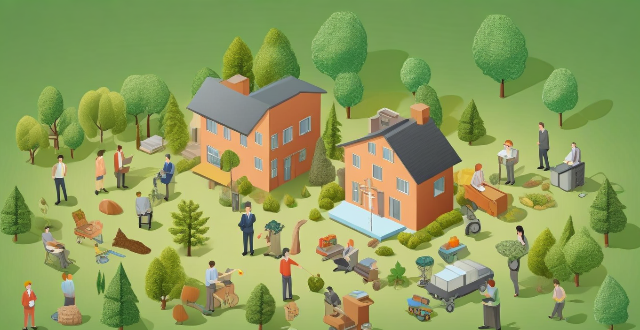
What is sustainable development and why is it important ?
Sustainable development is a concept that aims to meet the needs of the present without compromising future generations' ability to meet their own needs. It is crucial for addressing poverty, inequality, climate change, and environmental degradation. Sustainable development promotes economic growth, social inclusion, and environmental protection. It encourages renewable energy use, sustainable agriculture, and green technologies to create job opportunities and reduce unemployment. By ensuring access to basic services, it helps reduce poverty and improve living standards for all segments of society. Promoting gender equality is an integral part of sustainable development. It also focuses on reducing greenhouse gas emissions, adapting to climate change, conserving forests, protecting biodiversity and natural resources, controlling pollution, preventing conflicts over resources, aiding in post-conflict recovery, and reducing disaster risks. Sustainable development offers a framework for addressing complex global challenges while ensuring long-term ecological sustainability.

Can playing multiple sports help in skill development ?
Participation in multiple sports can enhance overall athleticism and skill development by improving physical attributes, reducing injury risk, developing transferable skills, and promoting mental toughness. It also offers social benefits such as expanded networks and increased opportunities for exposure. While specialization has its advantages, playing multiple sports can help athletes become well-rounded competitors.
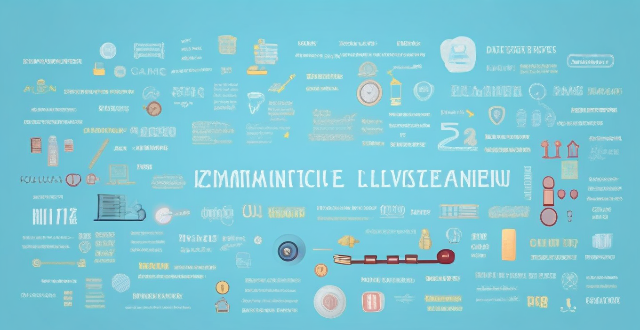
What programming languages are commonly used in educational game development ?
The text is about educational game development and the programming languages used. It lists some of the most commonly used programming languages in educational game development, including Python, JavaScript, Java, C#, UnityScript (C# variant), and HTML5/CSS3/JavaScript. The pros and cons of each language are discussed, along with examples of games that use them. The conclusion states that by choosing the right language for your project, you can ensure that your game is engaging, educational, and accessible to a wide audience.

How does climate governance affect sustainable development goals ?
Climate governance plays a pivotal role in shaping the achievement of sustainable development goals (SDGs). The interconnectedness between environmental preservation and socio-economic advancement necessitates a comprehensive understanding of how climate policies and actions influence the broader spectrum of global development objectives. ## **Impact on Individual SDGs** ### *Goal 2: Zero Hunger* Climate governance directly influences food security by addressing factors such as droughts, floods, and temperature fluctuations that can disrupt agricultural productivity. Effective climate policies can help to: - Ensure stable crop yields through improved irrigation systems and drought-resistant crops. - Mitigate the effects of extreme weather conditions on farming communities. - Promote sustainable land use practices to prevent soil degradation. ### *Goal 7: Affordable and Clean Energy* The transition towards renewable energy sources is at the heart of both climate governance and sustainable energy goals. Policies that encourage the adoption of clean energy technologies contribute to: - Reducing greenhouse gas emissions associated with traditional fossil fuel consumption. - Increasing access to electricity in off-grid areas using solar or wind power. - Creating new economic opportunities in the renewable energy sector. ### *Goal 13: Climate Action* This goal is inherently linked to climate governance, as it calls for urgent action to combat climate change and its impacts. Efficient climate policies can lead to: - Implementation of emission reduction strategies. - Enhanced resilience to natural disasters. - Promotion of environmentally friendly industries and jobs. ## **Cross-Cutting Impacts** ### Health and Well-being Climate governance affects public health outcomes by addressing air quality issues and reducing exposure to extreme weather events. This contributes to achieving: - **Goal 3: Good Health and Well-being** by minimizing climate-related health risks. ### Economic Growth Policies that foster green economies and low-carbon development pathways are crucial for: - **Goal 8: Decent Work and Economic Growth** by creating sustainable job opportunities. - **Goal 9: Industry, Innovation, and Infrastructure** through investment in green technology and infrastructure. ### Social Equity Climate governance also has implications for social equity and inclusion, particularly when considering the disproportionate impacts on vulnerable populations: - **Goal 10: Reduced Inequalities** by ensuring that climate adaptation and mitigation efforts do not marginalize already disadvantaged groups. ## **Conclusion** In conclusion, climate governance is an integral component of advancing sustainable development goals. By prioritizing climate action, nations can make strides in eradicating poverty, achieving food security, promoting health and well-being, and fostering economic growth while protecting the planet for future generations. The synergistic relationship between climate governance and the SDGs underscores the necessity for integrated policy approaches that consider environmental sustainability alongside social and economic development.